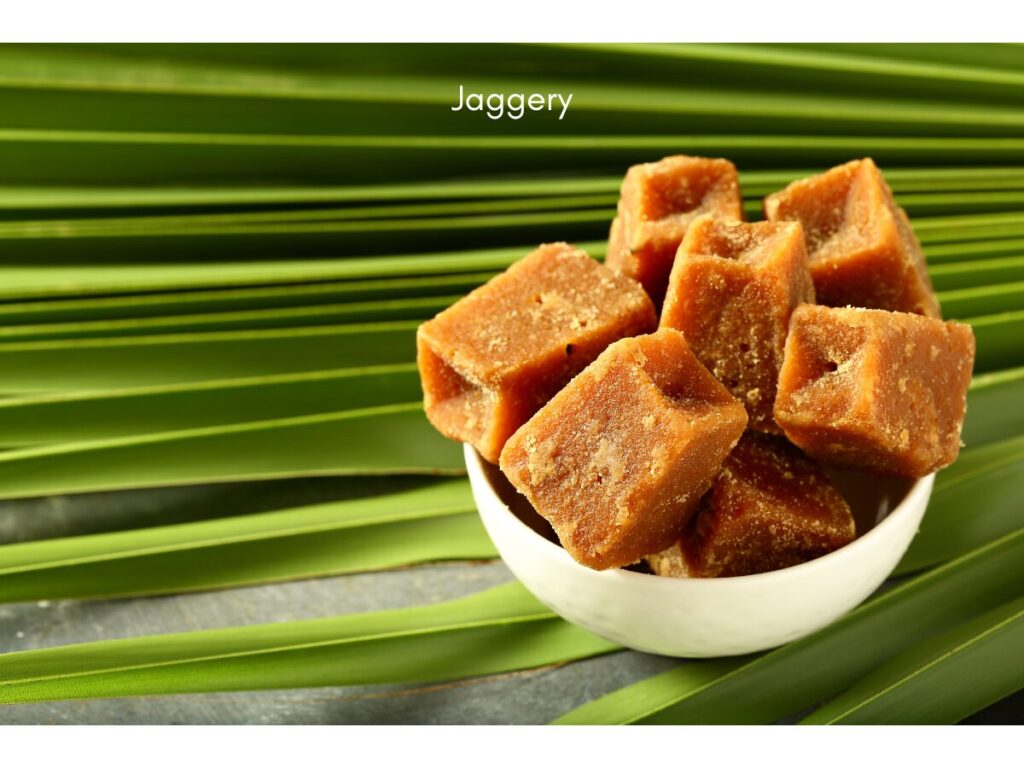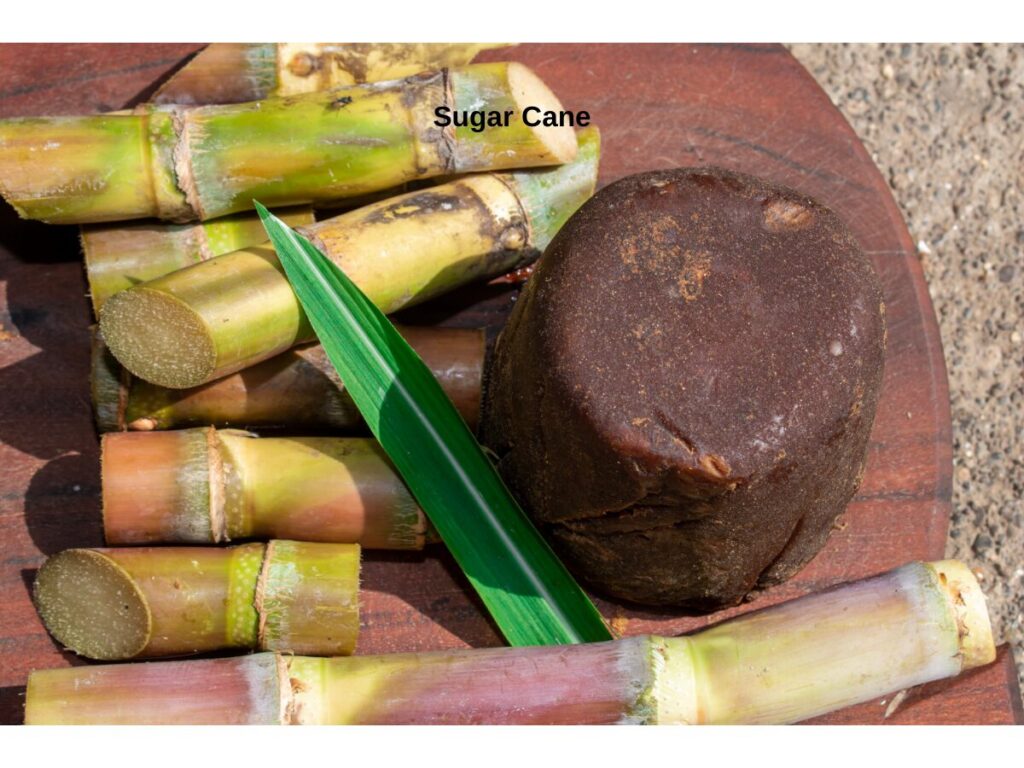In recent years, there’s been growing interest in alternative sweeteners as people become more health-conscious and seek to reduce their intake of refined sugar. One such alternative is jaggery, a traditional, unrefined sugar commonly used in parts of Asia and Africa. This article explores whether jaggery is healthier than sugar by comparing their nutritional profiles, health benefits, and potential drawbacks.
What is Jaggery?
Jaggery is a natural sweetener made from concentrated sugarcane juice or palm sap. Unlike refined sugar, jaggery undergoes minimal processing and does not involve the use of chemicals. The traditional method of making jaggery involves boiling the extracted juice and then cooling it to form solid blocks or granules.
Nutritional Profile of Jaggery vs. Sugar
Jaggery
- Calories: Approximately 383 calories per 100 grams.
- Carbohydrates: Around 98 grams per 100 grams.
- Minerals: Rich in iron, magnesium, potassium, calcium, and phosphorus.
- Vitamins: Contains small amounts of vitamin B-complex.
Sugar
- Calories: About 387 calories per 100 grams.
- Carbohydrates: Nearly 100 grams per 100 grams.
- Minerals and Vitamins: Refined sugar is devoid of significant amounts of minerals and vitamins.

Health Benefits of Jaggery
1. Rich in Nutrients
Jaggery retains most of the minerals from the original sugarcane juice or palm sap. It contains iron, which can help combat anemia, especially in individuals with low hemoglobin levels. Additionally, the presence of other minerals like magnesium and potassium makes jaggery a more nutrient-dense option compared to refined sugar.
2. Digestive Aid
Consuming jaggery after meals is a traditional practice in many cultures. It is believed to aid digestion by activating digestive enzymes and promoting bowel movements, which can help prevent constipation.
3. Detoxification
Jaggery is known for its ability to cleanse the liver by flushing out harmful toxins. Its antioxidant properties help in detoxifying the body, which can enhance overall health and well-being.
4. Improved Immune Function
The minerals and antioxidants present in jaggery can bolster the immune system, helping the body to fend off infections and diseases more effectively.
Potential Drawbacks of Jaggery
While jaggery offers several health benefits, it is essential to consume it in moderation. Overconsumption can lead to the same issues associated with excessive sugar intake, such as weight gain, blood sugar spikes, and an increased risk of chronic diseases like diabetes and heart disease.
Health Impacts of Refined Sugar
Refined sugar, also known as table sugar or sucrose, is a staple in many diets worldwide. However, its consumption has been linked to numerous health issues:
1. Empty Calories
Refined sugar provides calories without any essential nutrients, leading to “empty calories” that can contribute to weight gain and nutritional deficiencies.
2. Blood Sugar Spikes
Sugar is quickly absorbed into the bloodstream, causing rapid spikes in blood sugar levels. This can lead to insulin resistance, a precursor to type 2 diabetes.
3. Increased Risk of Chronic Diseases
High sugar consumption is associated with an increased risk of heart disease, obesity, type 2 diabetes, and certain cancers.

Comparing the Glycemic Index
The glycemic index (GI) measures how quickly foods raise blood sugar levels. Foods with a high GI cause rapid spikes in blood sugar, while those with a low GI result in a slower, more gradual increase.
- Jaggery: Moderate GI (between 50 and 60).
- Sugar: High GI (around 65).
While jaggery has a slightly lower GI than refined sugar, it still has the potential to raise blood sugar levels, though at a slower rate.
Choosing Between Jaggery and Sugar
When deciding between jaggery and sugar, consider the following factors:
- Nutritional Content: Jaggery is richer in essential minerals and vitamins compared to refined sugar.
- Health Goals: If you aim to reduce nutrient deficiencies and improve overall health, jaggery may be a better choice.
- Moderation: Both jaggery and sugar should be consumed in moderation to avoid potential health risks associated with excessive sugar intake.
How to Incorporate Jaggery into Your Diet
Here are some ways to include jaggery in your daily diet:
- Beverages: Use jaggery as a sweetener in tea, coffee, or homemade beverages like lemonade.
- Baking: Substitute refined sugar with jaggery in baking recipes for cakes, cookies, and bread.
- Snacks: Add jaggery to granola, energy bars, or trail mix for a nutritious snack.
- Cooking: Use jaggery in traditional dishes, such as Indian sweets and desserts, or as a flavor enhancer in savory dishes.
Is jaggery healthier than sugar? The answer depends on various factors, including nutritional content, health benefits, and individual dietary needs. Jaggery offers several advantages over refined sugar, such as higher mineral content and potential health benefits like improved digestion and detoxification. However, it’s crucial to consume jaggery in moderation to avoid the adverse effects of excessive sugar intake. Ultimately, incorporating jaggery as a natural sweetener can be a healthier choice, provided it’s part of a balanced and varied diet.